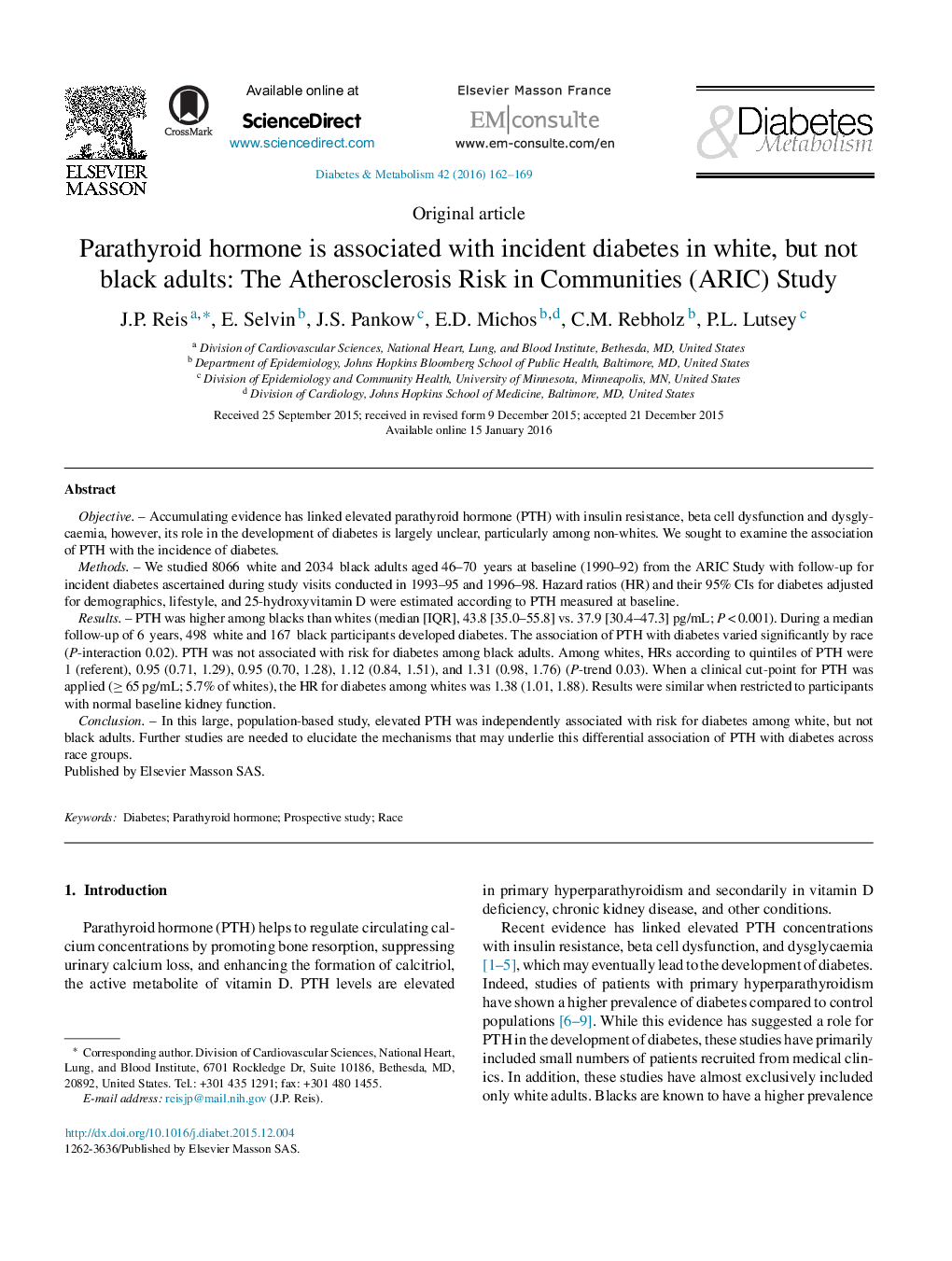| Article ID | Journal | Published Year | Pages | File Type |
|---|---|---|---|---|
| 3259037 | Diabetes & Metabolism | 2016 | 8 Pages |
ObjectiveAccumulating evidence has linked elevated parathyroid hormone (PTH) with insulin resistance, beta cell dysfunction and dysglycaemia, however, its role in the development of diabetes is largely unclear, particularly among non-whites. We sought to examine the association of PTH with the incidence of diabetes.MethodsWe studied 8066 white and 2034 black adults aged 46–70 years at baseline (1990–92) from the ARIC Study with follow-up for incident diabetes ascertained during study visits conducted in 1993–95 and 1996–98. Hazard ratios (HR) and their 95% CIs for diabetes adjusted for demographics, lifestyle, and 25-hydroxyvitamin D were estimated according to PTH measured at baseline.ResultsPTH was higher among blacks than whites (median [IQR], 43.8 [35.0–55.8] vs. 37.9 [30.4–47.3] pg/mL; P < 0.001). During a median follow-up of 6 years, 498 white and 167 black participants developed diabetes. The association of PTH with diabetes varied significantly by race (P-interaction 0.02). PTH was not associated with risk for diabetes among black adults. Among whites, HRs according to quintiles of PTH were 1 (referent), 0.95 (0.71, 1.29), 0.95 (0.70, 1.28), 1.12 (0.84, 1.51), and 1.31 (0.98, 1.76) (P-trend 0.03). When a clinical cut-point for PTH was applied (≥ 65 pg/mL; 5.7% of whites), the HR for diabetes among whites was 1.38 (1.01, 1.88). Results were similar when restricted to participants with normal baseline kidney function.ConclusionIn this large, population-based study, elevated PTH was independently associated with risk for diabetes among white, but not black adults. Further studies are needed to elucidate the mechanisms that may underlie this differential association of PTH with diabetes across race groups.
